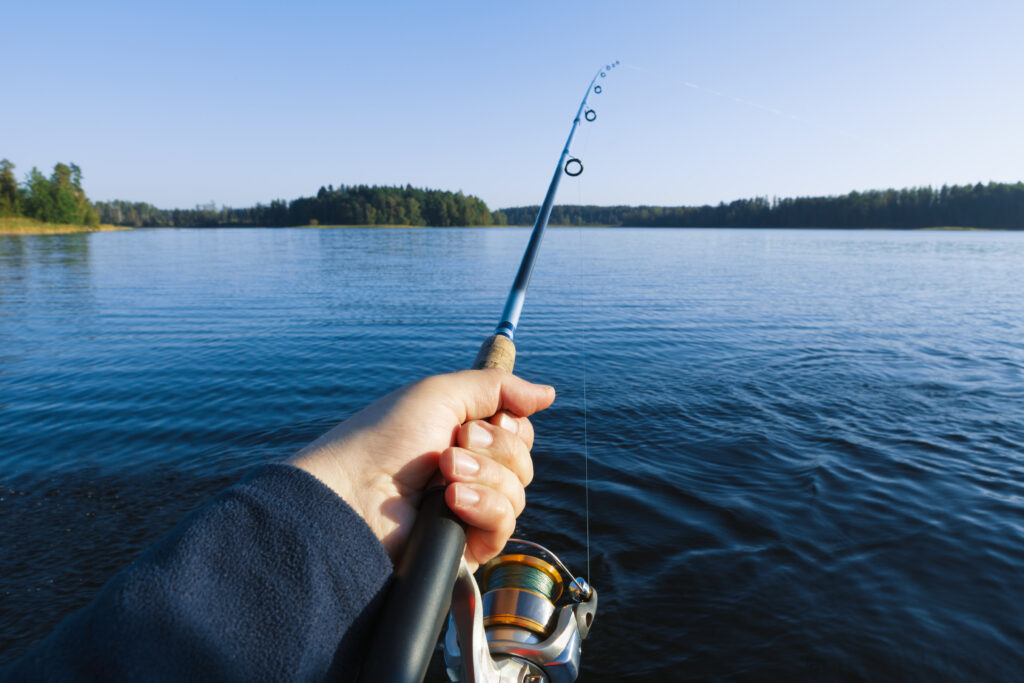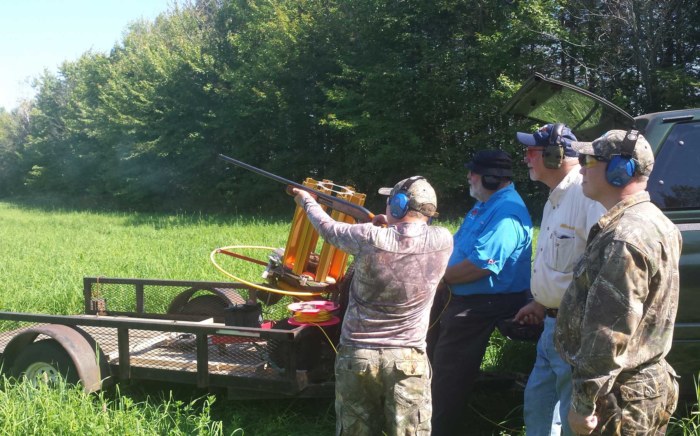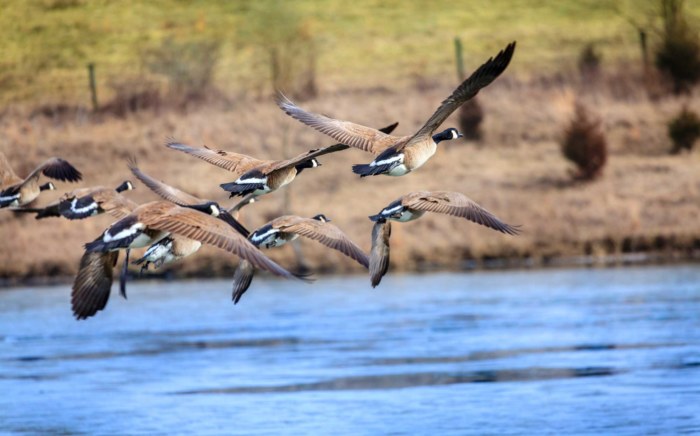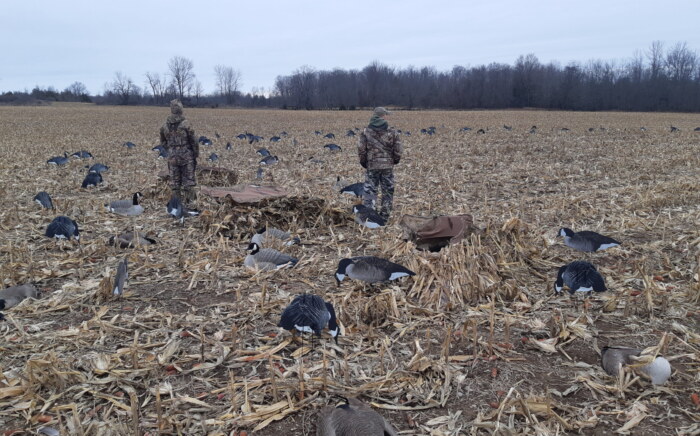On June 29th, 2020, the OFAH sent the following letter shown below to Ontario Premier Doug Ford.
Dear Premier Ford:
SUBJECT: Using Fishing and Hunting for Economic Stimulus and Recovery
The Ontario Federation of Anglers and Hunters (OFAH) is Ontario’s largest non-profit, fish and wildlife conservation organization, representing 100,000 members, supporters and subscribers, and 725 member clubs.
The OFAH acknowledges the need for unprecedented measures imposed by your government to protect public health from the threat of COVID-19. The Emergency Management and Civil Protection Act (EMCPA) and associated emergency orders appear to have been successful in curbing the spread of the disease, and we anticipate continued improvement in the coming weeks and months.
As you are well aware, these measures have come at a tremendous cost to the economy and the province is going to need a coordinated effort to climb out of the fiscal hole caused by these pandemic response measures. By the time pandemic-related restrictions are lifted, the province could very likely be facing the highest deficit in its history. Economic recovery will require harnessing the power of every sector, including outdoor recreation, tourism, provincial parks and conservation reserves, natural resources, and infrastructure.
Herein we provide general observations and recommendations for your consideration, followed by a suite of specific recommendations organized by Ministry. We are proposing moderate government investments that will create jobs and drive economic stimulus in the outdoors sector, while generating much-needed conservation benefits for Ontario’s natural resources that can be sustained long-term.
Impact of COVID-19 on the Outdoor Economy
COVID-19 has had direct and indirect impacts on the angling and hunting communities. Ontario’s anglers and hunters rely on small businesses for fuel, lodging, food, tackle and bait, ammunition, and services such as boat storage/transport, small engine and prop repair, etc. Many of these services were considered non-essential and ordered to close by the provincial government, thereby reducing economic activity. Furthermore, many anglers experienced reduced access to fishing opportunities due to the closure of boat launches and marinas. Even low-risk, solitary activities like fishing and turkey hunting were out of the question for many.
The loss of access to spring fishing and hunting opportunities, combined with uncertainty about whether fall seasons will even proceed as planned, could result in fewer people buying licences. For example, if the prohibition on social gatherings is maintained into the fall, party hunting for species such as moose and deer will be greatly impacted, if not impossible for many hunting groups. Organized hunt camps, an important part of Ontario’s hunting heritage, could find themselves unable to abide by the limit on social gatherings. As a result, many hunters are hesitant to buy licences without knowing if they will be able to participate in their preferred way. This would have a major impact on hunting activity and less revenue for the Fish & Wildlife Special Purpose Account (SPA), which is the main source of funding for provincial fish and wildlife conservation and management activities.
We already know that Ontario will lose millions of dollars in non-resident licence fees as a result of border restrictions on travel into Canada and COVID-related restrictions that caused uncertainty and delays in opening outfitting operations. This will also have significant impacts on fishing and hunting tourism businesses and the wide-reaching economic spinoffs of this industry, particularly in rural and northern Ontario.
Economic Footprint of Angling, Hunting, and Trapping
In cooperation with the Canadian Sporting Arms and Ammunition Association (CSAAA), we recently commissioned the Conference Board of Canada to report on The Economic Footprint of Angling, Hunting, Trapping and Sport Shooting in Canada. Their analysis estimated that fishing, hunting, trapping, and sport-shooting contributed $4.7 billion to Ontario’s GDP in 2018 and supported 36,900 jobs. Obviously, these sectors present an enormous opportunity to help kickstart the post-pandemic economy. In our previous letter to you (dated May 1), we strongly urged the government to prioritize outdoor recreation opportunities in the early phases of reopening the economy. We are pleased to see progress in the form of loosened restrictions, and we appreciate the government’s strong consideration of outdoor activities and economies, thus far.
Consumer Anxiety
The pandemic will likely have long-term impacts on people’s behaviour in the outdoors and a concerted effort is required to minimize the impact of consumer anxiety on all businesses. The public will be looking to the government for advice on how to participate safely in nature-based activities. The government should encourage nature-based recreation (and thereby increase revenue for tourism-related businesses) and provide people with clear direction and education on safely participating in outdoor activities within current public health guidelines. Involvement of high-profile personalities in promotions (e.g. Minister of Natural Resources and Forestry and the Premier) would send the message that hunting and fishing activities are safe and can be enjoyed responsibly. Additionally, businesses such as outfitters, lodges, guides, and marinas will need to be given clear guidance on how to operate in a manner that ensures the safety of their staff and customers.
General Recommendations
The following general recommendations reflect the need for the Government of Ontario to look at fishing and hunting as an important sector to help stimulate significant and sustainable economic and environmental benefits for the people of Ontario. The measures we are recommending are not simply to help Ontario recover from this pandemic, but are intended to provide lasting effects for sustainable resource-based economies, particularly in rural and northern Ontario.
In general, we are requesting central government buy-in that prioritizes:
- Promotion of fishing and hunting to encourage domestic participation and tourism;
- Removal of unnecessary regulatory barriers to sustainable fishing and hunting opportunities to maximize participation;
- Investments in natural and ‘green’ infrastructure; and
- Support for conservation-related jobs and careers.
Ministry-specific Actions
Many of our recommendations will require inter-ministerial cooperation, but we also recognize that you will be relying on individual ministries to take the lead on sectoral-based initiatives that will help Ontario’s economy to recover and prosper during the post-pandemic challenges ahead. Therefore, we have offered ministry-specific consideration based on our understanding of their respective roles and responsibilities.
Ministry of Infrastructure
Many of our individual recommendations for ‘infrastructure’ projects are not the current responsibility of the Ministry of Infrastructure (MOI) because of the way infrastructure is traditionally defined. We are asking the government to look beyond ‘grey infrastructure’ to include non-traditional natural or green infrastructure when prioritizing investments. Far too often, the Ministry of Natural Resources and Forestry (MNRF) and Ministry of the Environment, Conservation, and Parks (MECP) have the responsibility, but do not have the capacity to adequately tackle infrastructure projects. If these projects aren’t prioritized outside of MNRF and MECP budgets as general infrastructure needs, then they are not likely to receive the investments they need.
The following are some conservation-related infrastructure projects:
- Municipal Infrastructure: The OFAH is advocating for near-term infrastructure stimulus spending in municipalities to boost local and sustainable resource-based economies that benefit communities, anglers and hunters, and the environment – improved fish and wildlife habitat, more and better boat ramps and docks, trailer-friendly parking, dedicated and accessible fishing areas, invasive species signage, boat and trailer wash stations, and support for dam and barrier mitigation. These projects would provide immediate work for contractors, and ongoing economic stimulus for nearby businesses.
- Boat Wash Infrastructure: Purchase and install boat wash infrastructure in strategic communities, which would help many jurisdictions reduce the spread of aquatic invasive species to lakes through recreational boating pathways. This investment would benefit local contractors, cottagers’ groups, small businesses, and Indigenous communities, protect tourism and recreation assets, and reduce the economic and environmental impacts of aquatic invasive species.
- Habitat Creation/Rehabilitation: Invest in landscape-scale habitat creation and rehabilitation projects focused on invasive species removal, climate change mitigation, and improving watershed health. These ‘natural infrastructure’ projects typically require sustained funding during the multiple years of these projects to support the significant capacity, knowledge, data, species sensitivity, and biological expertise needed for meaningful, strategic results. These projects would provide immediate work for contractors, while achieving priority conservation targets that benefit native fish and wildlife populations, including species at risk. For example, investing in projects that create wetlands and upland habitat in southern Ontario (e.g. ALUS Canada) would result in improved hunting opportunities for many species including waterfowl and small game. These investments will benefit Ontario’s ecosystem, native biodiversity, and the economy through ecosystem benefits like decreased flooding risk, soil loss, insect damage, and erosion. Targeted restoration of aquatic habitat would result in improved fishing opportunities and ecosystem health.
- Dams/Barriers: Conduct a thorough review of legacy barriers and dams to assess needs for removal, redesign, or replacement of barriers. Some of these legacy barriers negatively impact fish passage and stream health, while others provide important stops against aquatic invasive species and flood management in a changing climate. This initiative would employ local contractors, while improving fish passage, controlling invasive species, and address climate change and flood risks.
- Green Shovels Coalition: The OFAH is part of the Green Shovels Coalition, an informal collaborative of conservation organizations (the Invasive Species Centre, Ducks Unlimited Canada, Nature Conservancy of Canada, Federation of Ontario Cottagers’ Association, and the Ontario Turtle Conservation Centre) that provided the Government of Ontario with a suite of flexible, shovel-ready conservation projects that would enhance job creation and sustainable infrastructure. These projects have a high leverage rate of at least 3:1 and are supported by generous financial and in-kind contributions from organizations and partners. Many of the ‘Green Shovels’ projects are included in this letter.
Ministry of Tourism and Sport
The OFAH would like to see the promotion of fishing, hunting, and trapping. As described above, it is not only important to our heritage, but also has incredible modern relevance to the people of Ontario generating billions of dollars for our economy. The outdoors sector continues to produce these massive benefits with little government acknowledgement of the activities, let alone the investment it deserves. This industry has the potential to provide a robust and sustainable economic stimulus. It requires investment in the resources themselves (see MNRF recommendations below), but also government support that promotes public support for, and participation in these activities. This can’t be done solely by one ministry nor can it focus on the ‘converted.’ It requires general government prioritization and investment.
Therefore, we are recommending the following actions from the Ministry of Tourism and Sport to support other fishing and hunting-related ministries:
- Stay & Play – Renewed Focus on Domestic Tourism: The closure of the international border has resulted in the loss of 100% of foreign revenue for many businesses. It is not known when the international border will reopen to non-essential travel, because the authority rests with the federal government. Until the border is reopened, the pool of paying customers targeted by outdoor retailers, outfitters, and other related businesses will remain shallow. Therefore, the immediate first phases of reopening should be focused on promoting and maximizing domestic tourism, encouraging Ontarians to spend their money and leisure time here in Ontario.
- Promotion: For years, the OFAH has been lobbying the government to actively promote fishing, hunting, and trapping as valuable and sustainable nature-based activities in an effort to increase participation. In contrast to activities like concerts and live theatre, many of these activities can be adapted to fit within public health recommendations such as physical distancing. Active promotion of angling and hunting is a straightforward and relatively low-cost method of enhancing their profile, maintaining/increasing participation, and positioning Ontario as a world-class tourist destination for outdoor experiences. This will not only help with short-term economic stimulus, but also long-term social, economic, and ecological benefits to the people of Ontario.
Ministry of Natural Resources and Forestry
The MNRF is a critical ministry for supporting many of the infrastructure projects listed above. As the ministry primarily responsible for fishing, hunting, and the management of fish and wildlife, there are many ministry-specific ways they can support economic and jobs stimulus within the outdoors sector. We appreciated the invitation to participate in the Ministerial Hunting, Fishing, and Resource-based Tourism Advisory Council, and commend your government for making a dedicated effort to bring stakeholders together to help identify opportunities for a sector-led response to the economic challenges caused by the COVID-19 pandemic.
The following represent opportunities for the MNRF to support Ontario’s economic recovery:
- Hire more Conservation Officers: The number of on-the-ground Conservation Officers is simply insufficient to adequately protect our natural resources from abuse. Investing in the hiring, training, and operationalizing of Conservation Officers will create long-term employment – careers instead of jobs. It would also fulfill your government’s commitment to strengthen enforcement, create jobs, and protect our natural resources.
- Fish Stocking Plans: Fishing is an essential tourism and economic driver in Ontario. There are more than 1.4 million recreational anglers who contribute over $2.2 billion each year to the Ontario economy. Despite these significant contributions, we are not fully harnessing the power of fish stocking due to a disjointed approach and a lack of provincial-level planning. We recommend establishing a fish stocking plan for each Fisheries Management Zone (FMZ), which is a low-cost, relatively quick action that aligns with Ontario’s existing fisheries management goals and objectives. Fish production capacity already exists, but a more strategic approach (i.e. the right fish in the right place at the right time) will help ensure we are optimizing the return on investment. It would also help out the nine MNRF fish culture stations and over 50 club-owned and operated community hatcheries throughout Ontario. The MNRF has estimated that each $1 in operational funds invested in the fish culture program generates approximately $11 in economic benefits. This would leverage the huge return on investment and pay dividends through economic activity.
- Enhanced Communication of Fish Stocking Efforts: Ontario has a great resource to promote Ontario’s fishing and associated tourism opportunities in its Fish ON-line tool, but we are not harnessing its full potential. Investing in the program to keep it as up-to-date as possible, as well as promoting it more will help anglers find nearby opportunities and the tourist industry promote their services. This will keep Fish ON-line relevant, help anglers and tourism, and ensure that Ontario can reap the full benefits of our amazing fishing opportunities.
- Sunday Gun Hunting: Expand Sunday gun hunting opportunities across the province. This would harness the full economic contribution of hunting. These opportunities have proven to be successful where adopted, and allows hunters to extend their hunt for the full weekend.
- Examine additional angling and hunting opportunities: There are a variety of additional angling and hunting opportunities that could be implemented to generate economic opportunity and conservation benefits for the province.
- Black bear hunting: We are extremely pleased that the government is restoring the spring bear hunt and its tremendous contribution to wildlife management and the provincial economy. For too long, the spring bear hunt was ignored by previous governments and its reinstatement has been extremely well received by the outdoors community. Since 2013, we have also been seeking an expansion of bear hunting opportunities in southern Wildlife Management Units (WMU) that don’t currently have a bear hunt. We recommend initiating the necessary population assessment programs to determine which areas can support new bear hunting opportunities, beginning with WMUs 77, 78A-C, 80-82, and 84-86.
- Wild turkey hunting: We are also pleased to see a proposed expansion of fall turkey hunting opportunities in Northumberland and Pelee Island. We recommend re-examining the criteria for expanding turkey hunting opportunities to ensure hunts can be implemented wherever they are sustainable.
- Falconry: The Ontario Hawking Club has made several recommendations for improving the provincial falconry program which would maximize participation and remove regulatory barriers. We support their recommendations and recommend their implementation.
- Training and trialing for dogs: Expand the authorized use of Crown land and Conservation Authority lands to include the training and trialing of versatile hunting dogs and retrievers.
- Snowshoe hare hunting: We recommend extending the season for snowshoe hares in northern Ontario to maximize participation by northern hunters during their preferred time of year.
- Sandhill crane hunting: We recommend working with the Canadian Wildlife Service to implement a sustainable hunt for sandhill cranes. Sandhill crane populations are currently above their management objectives and are highly prized by hunters.
- We encourage Conservation Authorities and municipalities that do not currently permit hunting to consider doing so. Strategies have been developed to ensure safe hunting in areas where it was previously considered unfeasible (e.g. City of Thunder Bay bow hunt).
All of these opportunities would help maximize participation and stimulate economic activity.
- Increasing Access: Support municipalities in improving or creating access to recreational opportunities, including fishing and boating, by providing resources for boat launches, parking suitable for trailers, and dedicated shoreline fishing areas (piers, boardwalks, nodes, etc.). Promote, implement, and expand the Urban Recreational Fishing Strategy to improve angling access in areas where opportunities to enjoy the natural environment are limited. This would offer important local economic stimulus over the long term, and contribute to the recruitment and retention of resident anglers.
- Prioritize recruitment, retention, and reactivation of anglers, hunters, and trappers: The value of fishing, hunting, and trapping is not lost on you, and yet there is so much more we could be doing to harness the full potential value. Active promotion, rather than passive acceptance by government, would greatly help recruit, retain, and reactivate participants. For example, the creation of a Provincial Hunting and Trapping Strategy (similar to the existing Provincial Fishing Strategy) to champion, promote, and enhance the importance of hunting and trapping in Ontario would be a low-cost important first step.
- Ontario Family Fishing Events (OFFE): Your government has already expanded the Ontario Family Fishing Events program to include licence-free fishing on the Mother’s Day and Father’s Day weekends. The Government of Ontario could expand this program to expose more Ontario residents to fishing and ultimately encourage recruitment of new anglers. Modest investment in angler recruitment can pay huge returns.
- Work Experience Programs: Enhance provincial work experience programs with dedicated career training support for conservation interns, workers, and students in the sustainable resource management field through the Ontario summer student program and the Ontario regional conservations internship. These opportunities provide practical, job-ready experience for students, recent graduates, young adults, and Indigenous youth. Their effective, low-cost delivery by employers mean minimal investment from government, but significant long-term employment and conservation benefits. The government could also directly support conservation-related work experience through their own programs like the Youth Stewardship Rangers, and internships.
Ministry of Environment, Conservation, and Parks
It becomes increasingly difficult to completely separate recommendations for the MECP and MNRF due to the parallel and intersecting mandates of these ministries. Many of the recommendations for MNRF above are relevant to and require the involvement of MECP to support the Made-in-Ontario Environment Plan. We appreciated an opportunity to participate in the Ministerial Advisory Council consultations hosted by Minister Yurek to discuss the impacts of COVID-19 on the Ontario Provincial Parks and Conservation sector.
The following is a specific MECP initiative that would help support Ontario’s economic recovery:
- Hunting in Provincial Parks and Conservation Reserves: Work with the MNRF to increase angling and hunting opportunities in provincial parks and conservation reserves. Increased park usage, particularly in shoulder seasons, can help generate revenue – for parks and nearby communities. We have submitted a detailed list of opportunities to Minister Yurek to support this recommendation.
Conclusion
Our province faces a long road to recovery, which will require all economic gears operating in unison. As demonstrated in this letter, the communities that we represent have tremendous potential to contribute to economic recovery with only a modest investment from government. We recommend leveraging the strength of partners, such as the OFAH and the outdoors industry, to help deliver positive messaging about responsible fishing and hunting in a world altered by COVID-19.
We would appreciate the opportunity to discuss these recommendations in more detail with you and your staff, as well as relevant ministers and their staff.
Yours in Conservation,
Angelo Lombardo
Executive Director





Leave a Comment